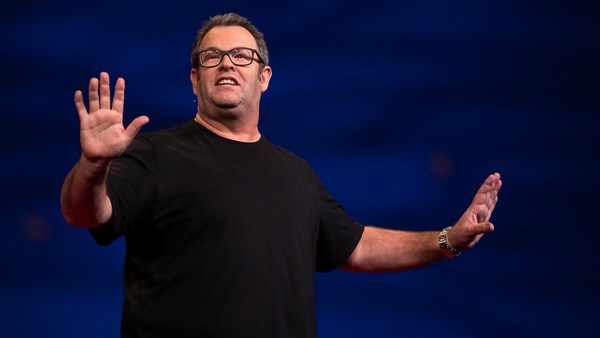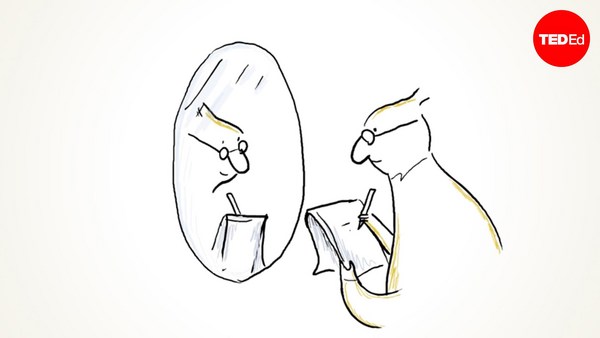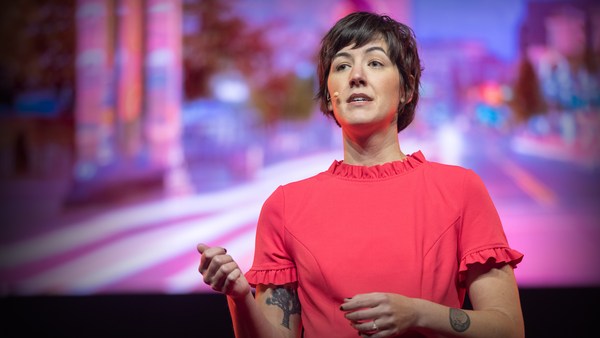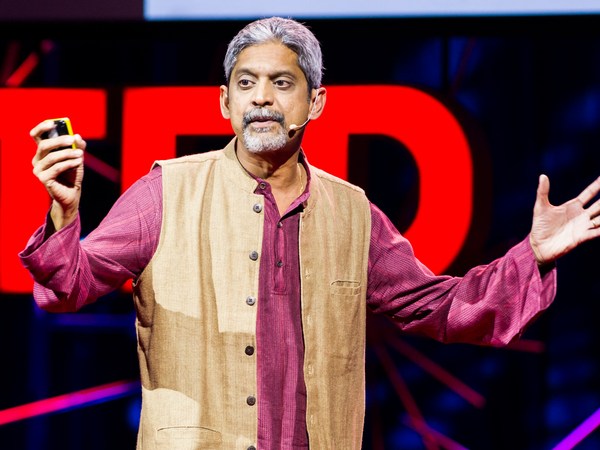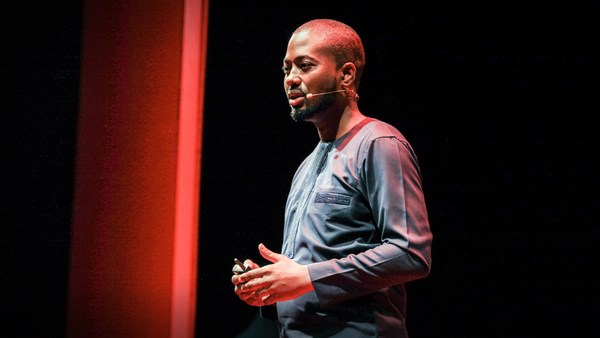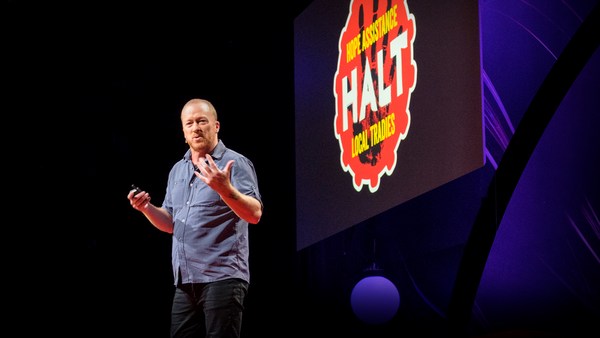Pat Mitchell: 11 years ago, you, your sister --
Glenn Close: 14 years ago.
PM: 14 years ago! Your sister, your nephew and yourself made this courageous decision to step forward and say, "Our family has suffered from mental illness," at a time when very few people were talking publicly. What led to this decision for the family?
GC: My sister Jessie, my younger sister, always the wild one -- my dad, who was a doctor, actually said, "Pull up your socks, get back to work, get an education." She came up to me one summer, having put her kids in the car, and she said, "I need your help. I can't stop thinking about killing myself."
I was in shock. I had absolutely no clue, no clue of what she was dealing with. So my mom and I were able to get her help. Her son Calen suffers from schizophrenia. Lives with schizophrenia. And together they came to me and said, "We have -- we're trying to learn how to manage our illnesses," which in long-term recovery means you have to change meds. It's how many meds? It's what -- It's a process and it's a long process, and you have to be very resilient.
But they said, "We have found that the stigma around what we are dealing with can be worse than the diseases themselves." When Calen came back from two years in a psychiatric hospital, none of his friends came back. They still haven't come back, even though he's become this advocate. It's incredible to me.
So I said, because they're my family, I said, "Of course, I will help you, but you have to do it with me because it's not about me, it's about you, and it's about our family." But their courage still brings me to my knees. Because no one was talking about it.
PM: And yet this silent epidemic, which it still is in many ways, continues. So you and your family took another step. You founded an organization called Bring Change to Mind.
GC: I learned about mental health advocacy at Fountain House in New York, and when we decided that I wanted to do something, I wanted to start an organization, many generous, wonderful people who had their own organizations, the head of Fountain House included, sat in that library, and one of them went online and said, "What's available? What's available? Oh, Bring Change to Mind. OK, let's use that."
(Laughter)
I mean, I didn't even know I had to have a board.
(Laughter)
So --
(Laughter)
PM: I think many people recognize that moment.
GC: Yeah. And that was, oh my gosh, that was a huge adventure. And I thought that my main contribution would be making PSAs and things like that. We have evolved. We now have established over -- it's 540 clubhouses in 43 states.
(Applause)
And the thing that I'm very proud of are the kids, because it's peer-to-peer. It's not high schools that write to us. It's the kids that write to us. The kids say, "We want, we need a Bring Change to Mind club in our high school." And I've met a lot of them, and they are phenomenal.
(Applause)
PM: And that is transformative.
GC: Yeah. I think there's about 14,000 kids now with, you know, a waiting list always.
PM: So providing this kind of peer-to-peer experience, especially among teenagers, where the suicide rate and other forms of mental illness have been just escalating, was a big first step.
GC: Yeah.
PM: But you took it beyond that. You went to Washington. You talked publicly about the lack of resources to treat families suffering with mental illness. There were some accomplishments, right? There have been some successes.
GC: Yeah. It's actually very, very exciting. And we're at a point where our government has a bipartisan bill. They have put aside 8.5 billion dollars in the next 10 years to establish what we're calling, what they are calling Certified Community Behavioral Health Clinics in every state of the union --
(Applause)
And whatever town or county needs them. Look into it, because we all should have it in our counties, at least, in our towns, in our cities, because actually we're in a crisis of care.
PM: And, Glenn, I know that you were the first to always say about this subject, "I'm not a mental health expert. I'm not a doctor. I came into this for very personal reasons." But I'm sure there are many people listening to us today who are thinking, "Are there signs? Are there symptoms, are there things I should look for?" You said yourself you didn't realize how much Jessie was suffering.
GC: Oh, not at all.
PM: What clues, what things did you see?
GC: First of all, I think -- My sister Jessie wrote a book called "Resilience." She's so incredibly honest. And she talks about her own journey with bipolar disorder, but also her son, when he had his psychotic break at 19, she didn't know what was happening. She didn't know what was going on. You know, he was thinking the television was speaking to him. He was afraid that the CIA was outside. She had no clue. And he would, you know, he'd be like this. And it was a friend of hers who had taken psychiatry in college, who said, "Jess, let me spend a little time with him." And she said, "I think he has schizophrenia." And -- It was because of that friend. I mean, Jessie would have, of course, if that friend hadn't stepped up, I'm sure, you know, found some answers to his behavior. But that's actually -- I think people hopefully are learning about that kind of thing. But I think it's the anxiety, it's the depression, it's suicidal ideation, it's food disorders that people can so easily hide. And the thing you need to be -- vigilant about is a change in behavior that lasts over -- Like, yes, we all can be depressed for four or five days, the weather changes, you've lost a boyfriend or, you know, God forbid someone has -- you're mourning a death. But this is different. And when you observe that, you have to say, "Are you OK?" And even if they say yes, and you feel differently, you have to say it again. "Are you OK?" Until you get -- what's happening.
PM: And how are they today? Jessie and --
GC: Oh, Jessie.
(Sighs)
Jess -- I almost hate to use the words, it's so overused, but Jessie is my true hero. Both Calen and Jessie. I have to tell you, she weeps. The meds are hard. She has emphysema. She was a wild woman and smoked a lot of cigarettes.
(Laughter)
But she weeps and says, "I don't want to be this way. And the meds, they're going to shorten my life." And she has six grandchildren. Now, that's hard. It's hard. And -- Sometimes I say -- She said to me once, "I guess I'm the family --" What is it, black sheep? No. I guess I'm -- it's not the experimental lamb. I forget the word. Anyway. Why, out of all of us, was it her? Why was it Calen? We've learned so much. But so for -- I live across the yard from my sister. When I'm home, I'm over there all the time. Pippy, my dog, kind of has a thing going on with one of her little dogs.
(Laughter)
He won't admit it, but it's obvious.
(Laughter)
And I try, you know, I try to get her out of the chair. You know, "Let's go for a drive." You know, "Do you want to go walk around the block? Let's get our other sister and, you know, let's just try to get, you know, movement and light. So it's a constant thing.
Now, Calen is a beautiful man. He's married to -- He's married. He's been married for, I think, 10, 11 years. And he's a painter. He's a painter. And -- He once, early on, after he came out of the hospital and he was brave enough to go to a local art class, he decided that he should tell the teacher that he was living with schizophrenia. So he got up his courage and he said, "Sir, I just want you to know that I'm living with schizophrenia." And the teacher said, "Don't come back."
(Audience) Oh...
He is a fabulous painter.
(Applause)
PM: This -- These stories, they do remind us of how big that stigma is still, as one of the biggest barriers to people getting the help. And Glen, there's just such gratitude that we all feel for the courage that you had, and your -- I know, but you fought for your sister and for your nephew, and for all.
GC: Yeah. Now we've got to scale it out. We have to scale out this community health care system we have. It's a crisis of care. You know, the treatments are there. And they work, and people can recover. But you can't just treat people when they have a break, and you give them a couple of meds. You've got to be in it for the long haul. And we have to have structures like that across our country.
PM: And because of your work, we will have more and because of the work of Bring Change to Mind and --
(Applause)
(Audience) Aww!
GC: Pippy!
(Laughter)
Here you are! Here you are!
PM: This is Mr. Pip, everyone.
(Laughter)
GC: Pippy!
PM: I think this is your mental illness companion.
GC: It is. Do you have anything to say? Do you want to speak? Good job!
PM: Thank you, everyone.
GC: Thank you.
